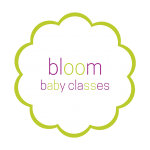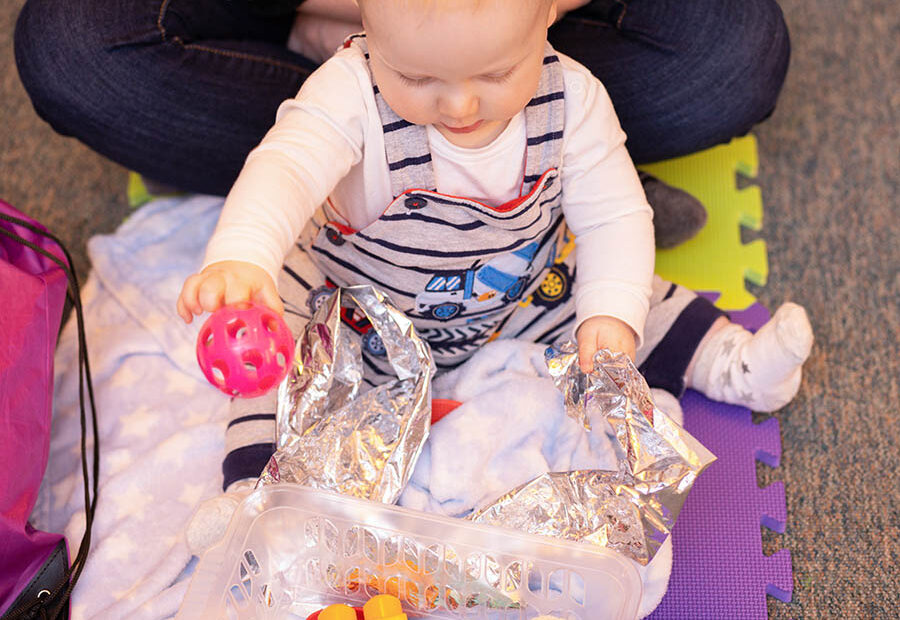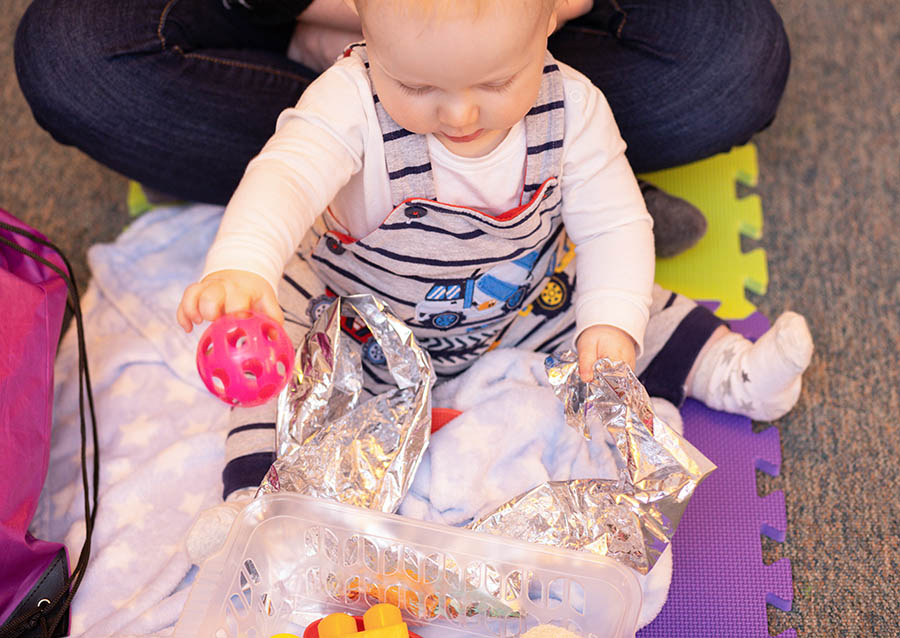
What activities are good for my baby? How do I help them to grow and develop?
Perhaps two of the most common questions that I come across. I could blind you with science here and go into detail on exactly what kinds of activities will trigger the neurons to get firing in different parts of the brain, and then go on to explain how that can help your baby’s development and growth. If we’re being honest though, I know that you don’t want the plain boring facts, whilst it’s great to understand what is happening, what you really want to know about is the fun stuff!
Being a new parent can be a tough transition to make, and I don’t just mean being a new parent for the very first time. Every addition to your family is a journey, every baby is different, and every change can create challenge. There are lots of things that you can do to
ensure that those precious first months are fun and packed with memory making activities, but without feeling overwhelmed. Joining group classes such at the Caterpillar Club or Busy
Bees is a great way for you to bond with your baby, learn new activities you can do with them, and also develop friendships with other parents and carers.
Getting active, encouraging play, and being creative are all fantastic ways for you to bond with your baby, make lasting memories and also help your baby’s development. But which
activities are the right ones to be doing? This will depend somewhat on what your baby enjoys but also on what you enjoy as well, there is no point in adding in lots of activities that
you don’t like as this will just put you under more pressure and stress when you really don’t need it.
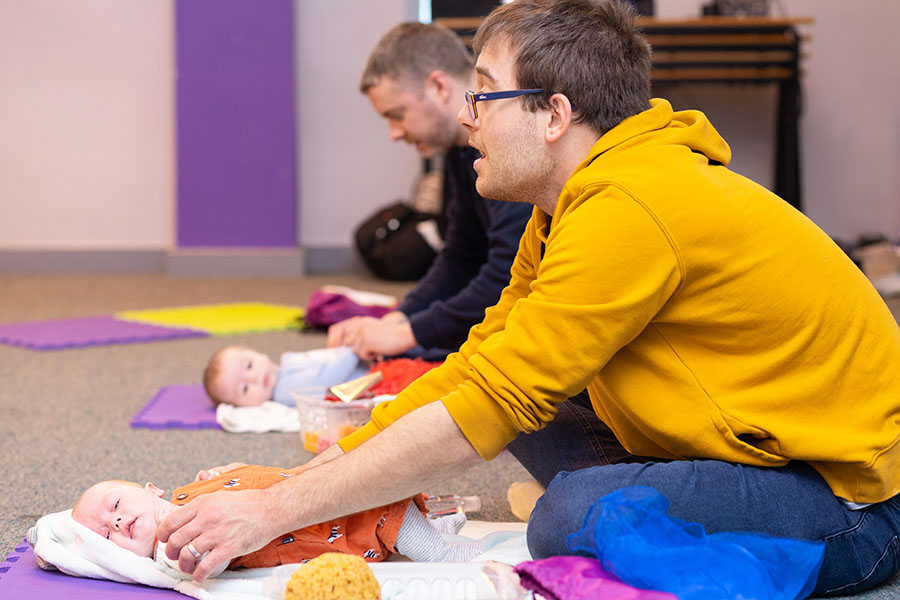
Activities for Newborns
First off let’s clarify what a newborn is, which is surprisingly harder than you might think.
Most people will think of newborns as babies within the first few days of birth, but it can actually mean anything up to around 28 days old. Remember at this age your baby doesn’t have great eyesight and can’t see detail which is too far away from them. Focus on activities where you are heavily involved. This could be reading and singing to them, helping develop their strength by encouraging them to reach for toys and of course ‘tummy time’. Tummy time is a key activity to help your baby develop the strength they will need to eventually move on to things like sitting and crawling. Whilst your baby is still very young you can do tummy time by placing them on your chest rather than on the floor. As you progress as they get older be sure to get down and your baby’s level and also encourage eye contact, this will help to develop a number of skills.
Activities for up to 3 months
You can continue with everything your baby already loves but also start to add in more complex activities too. Placing a favourite toy just out of reach will encourage them to reach for it building up muscle strength and encouraging development of major and fine motor skills.
Babies often respond well to music, hold them close and dance with them, sway gently to music, twirl around, move low and high. Give your baby a sense of change and a different
perspective of the room you are in. By around two months old your baby should be finding their voice, they are likely making cooing and gurgling sounds in response to you, continue to encourage this by making silly noises with them and seeing how they interact and respond.
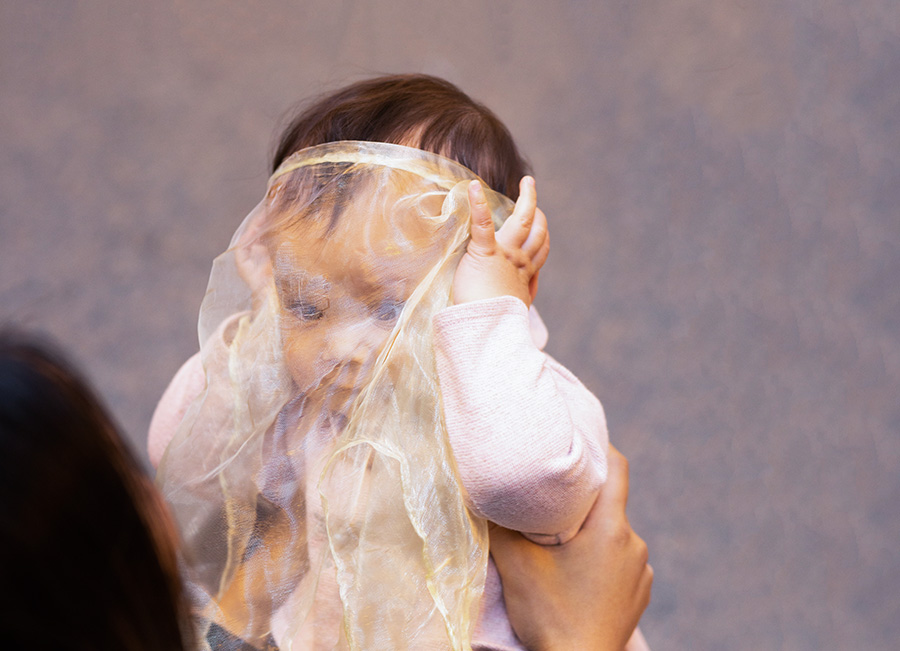
Activities for 3 to 6 months
Sensory based play activities are great for all ages but now that your baby is more active and
has better developed eyesight you can really add in lots of sensory activities to help their physical and cognitive development. Sensory play is anything that encourages the use of
one, or multiple, of the five senses – sight, hearing, touch, smell and taste. You can read more on why sensory development is important here.
A number of great activities can be based in messy play – allowing your baby to experience different textures, colours and smells. Rhythm and rhyme-based activities are great for stimulating both hearing and sight and will of course help to develop language skills alongside motor skills and muscle strength if you include actions for them to copy and repeat. Games like peek a boo are great at this age and are sure to elicit giggles from your little one.
Activities for 6 months and over
As your baby grows stronger and more mobile, they will also become much more interested in the world around them and they will start to engage in activities for longer periods of times. If your baby is ready then there are lots of things that you can do to continue to develop their language skills, and also their gross and fine motor skills.
Toys or objects that they can stack on top of each other or make shapes from are great now. You can introduce colours and counting as well as names of shapes, it will be a while before they are able to remember them all but starting to encourage recognition from an early age will aid cognitive and spatial development. Wooden puzzles and shape sorters are great for encouraging your baby to reach for objects and also start problem solving i.e., which piece fits where. Continue to read with your baby and teach them the actions to your favourite nursery rhymes. Encourage your baby to try and turn the pages of books with you, this can help with
hand eye coordination.
Finally…
Play time should be fun, but it is a great way to help your baby to learn and develop. As you engage in more activities together your bond with your baby will also grow and develop
